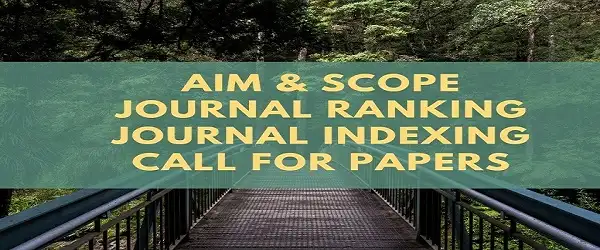Ars Et Humanitas impact factor, indexing, ranking (2024)

Aim and Scope
The Ars Et Humanitas is a research journal that publishes research related to Arts and Humanities. This journal is published by the Ljubljana University Press, Faculty of Arts. The ISSN of this journal is 18549632, 23504218. Based on the Scopus data, the SCImago Journal Rank (SJR) of ars et humanitas is 0.12.
Also, please check the following important details about ars et humanitas: Publisher, ISSN, Ranking, Indexing, Impact Factor (if applicable), Publication fee (APC), Review Time, and Acceptance Rate.
According to Clarivate's JCR, journals indexed in SCIE/SSCI have an impact factor.
Ars Et Humanitas Ranking
The SJR (SCImago Journal Rank) measures citations weighted by prestige. It is useful for comparing journals within the same field, and forms the basis of the subject category ranking. A journal SJR indicator is a numeric value representing the average number of weighted citations received during a selected year per document published in that journal during the previous three years, as indexed by Scopus. Higher SJR indicator values are meant to indicate greater journal prestige. SJR is developed by the Scimago Lab, originated from a research group at University of Granada. Q1 journals are cited more often and by more prestigious journals than those in the other quartiles.
Each subject category of journals is divided into four quartiles: Q1, Q2, Q3, Q4. Q1 is occupied by the top 25% of journals in the list; Q2 is occupied by journals in the 25 to 50% group; Q3 is occupied by journals in the 50 to 75% group and Q4 is occupied by journals in the 75 to 100% group.
CiteScore of an academic journal is a measure reflecting the yearly average number of citations to recent articles published in that journal. This journal evaluation metric was launched in December 2016 by Elsevier as an alternative to the generally used JCR impact factors (calculated by Clarivate). CiteScore is based on the citations recorded in the Scopus database rather than in JCR, and those citations are collected for articles published in the preceding four years instead of two or five.
Source Normalized Impact per Paper (SNIP) is calculated annually from Scopus data. It is a sophisticated metric that intrinsically accounts for field-specific differences in citation practices.
Important Metrics
| Journal Title: | Ars et Humanitas |
| Publisher: | Ljubljana University Press, Faculty of Arts |
| ISSN: | 18549632, 23504218 |
| Type: | journal |
| Journal Scope: | Arts and Humanities |
| Country: | Slovenia |
| H-Index: | 3 |
| SJR: | 0.12 |
| Quartile: | Arts and Humanities (miscellaneous) (Q3) |
ars et humanitas Indexing
The ars et humanitas is indexed in:
An indexed journal means that the journal has gone through and passed a review process of certain requirements done by a journal indexer.
The Web of Science Core Collection includes the Science Citation Index Expanded (SCIE), Social Sciences Citation Index (SSCI), Arts & Humanities Citation Index (AHCI), and Emerging Sources Citation Index (ESCI).
Ars Et Humanitas Quartile
The latest Quartile of ars et humanitas is Q3.
Each subject category of journals is divided into four quartiles: Q1, Q2, Q3, Q4. Q1 is occupied by the top 25% of journals in the list; Q2 is occupied by journals in the 25 to 50% group; Q3 is occupied by journals in the 50 to 75% group and Q4 is occupied by journals in the 75 to 100% group.
Call for Papers
Visit to the official website of the journal/ conference to check the details about call for papers.
How to publish in Ars Et Humanitas?
If your research is related to Arts and Humanities, then visit the official website of ars et humanitas and send your manuscript.
Tips for publishing in Ars Et Humanitas:
- Selection of research problem.
- Presenting a solution.
- Designing the paper.
- Make your manuscript publication worthy.
- Write an effective results section.
- Mind your references.
Acceptance Rate
Acceptance rate is the ratio of the number of articles submitted to the number of articles published. Researchers can check the acceptance rate on the journal website. Alternatively, they can contact the editor of the journal.Journal Publication Time
The publication time may vary depending on factors such as the complexity of the research and the current workload of the editorial team. Journals typically request reviewers to submit their reviews within 3-4 weeks. However, some journals lack mechanisms to enforce this deadline, making it difficult to predict the duration of the peer review process.
The review time also depends upon the quality of the research paper.
Final Summary
- It is published by Ljubljana University Press, Faculty of Arts.
- The journal is indexed in UGC CARE, Scopus.
- The (SJR) SCImago Journal Rank is 0.12.
Sources: ars et humanitas
SIMILIAR JOURNALS
ACM JOURNAL ON COMPUTING AND CULTURAL HERITAGE
ISSN: 1556-4673Publisher: ASSOC COMPUTING MACHINERY
ISSN: 0800-3831
Publisher: ROUTLEDGE JOURNALS, TAYLOR & FRANCIS LTD
AEVUM-RASSEGNA DI SCIENZE STORICHE LINGUISTICHE E FILOLOGICHE
ISSN: 0001-9593Publisher: VITA PENSIERO
ALPHA-REVISTA DE ARTES LETRAS Y FILOSOFIA
ISSN: 0716-4254Publisher: UNIV LOS LAGOS
ISSN: 0044-7471
Publisher: TAYLOR & FRANCIS INC
ISSN: 0065-860X
Publisher: JOHNS HOPKINS UNIV PRESS
ISSN: 0277-7126
Publisher: PHILOSOPHY DOCUMENTATION CENTER
ISSN: 0003-0678
Publisher: JOHNS HOPKINS UNIV PRESS
ISSN: 0003-0937
Publisher: PHI BETA KAPPA SOC
AMERICAN STUDIES IN SCANDINAVIA
ISSN: 0044-8060Publisher: ODENSE UNIV PRESS
TOP RESEARCH JOURNALS
- Agricultural & Biological Sciences
- Arts & Humanities
- Business, Management and Accounting
- Chemistry
- Computer Science
- Education
- Engineering
- Mathematics
- Medicine
- Physics
- Social Sciences